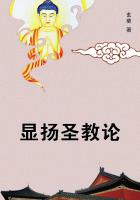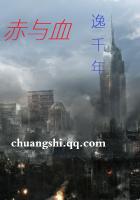Justinian's glorious legacy was already forgotten. The old mechanism which had kept society together in the fifth century was worn out, broken, rejected. There was no literature, no philosophy, no poetry, no history, and no art. Even the clergy had become ignorant, superstitious, and idle. Forms had taken the place of faith. No great theologians had arisen since Saint Augustine. The piety of the age hid itself in monasteries; and these monasteries were as funereal as society itself. Men despaired of the world, and retreated from it to sing mournful songs. The architecture of the age expressed the sentiments of the age, and was heavy, gloomy, and monotonous. "The barbarians ruthlessly marched over the ruins of cities and palaces, having no regard for the treasures of the classic world, and unmoved by the lessons of its past experience." Rome itself, repeatedly sacked, was a heap of ruins. No reconstruction had taken place. Gardens and villas were as desolate as the ruined palaces, which were the abodes of owls and spiders. The immortal creations of the chisel were used to prop up old crumbling walls. The costly monuments of senatorial pride were broken to pieces in sport or in caprice, and those structures which had excited the admiration of ages were pulled down that their material might be used in erecting tasteless edifices. Literature shared the general desolation. The valued manuscripts of classical ages were mutilated, erased, or burned.
Ignorance finished the destruction which the barbarians began.
Ignorance as well as anarchy veiled Europe in darkness. The rust of barbarism became harder and thicker. The last hope of man had fled, and glory was succeeded by shame. Even slavery, the curse of the Roman Empire, was continued by the barbarians; only, brute force was not made subservient to intellect, but intellect to brute force. The descendants of ancient patrician families were in bondage to barbarians. The age was the jubilee of monsters.
Assassination was common, and was unavenged by law. Every man was his own avenger of crime, and his bloody weapons were his only law.
Nor were there seen among the barbaric chieftains the virtues of ancient Pagan Rome and Greece, for Christianity was nominal. War was universal; for the barbarians, having no longer the Romans to fight, fought among themselves. There were incessant irruptions of different tribes passing from one country to another, in search of plunder and pillage. There was no security of life or property, and therefore no ambition for acquisition. Men hid themselves in morasses, in forests, on the tops of inaccessible hills, and amid the recesses of valleys, for violence was the rule and not the exception. Even feudalism was not then born, and still less chivalry. We find no elevated sentiments. The only refuge for the miserable was in the Church, and it was governed by men who shrank from the world. A cry of despair went up to heaven among the descendants of the old population. There was no commerce, no travel, no industries, no money, no peace. The chastisement of Almighty Power seems to have been sent on the old races and the new alike. It was a desolation greater than that predicted by Jeremy the prophet. The very end of the world seemed to be at hand.
Never in the old seats of civilization was there such a disintegration; never such a combination of evils and miseries.
And there appeared to be no remedy: nothing but a long night of horrors and sufferings could be predicted. Gaul, or France, was the scene of turbulence, invasions, and anarchies; of murders, of conflagrations, and of pillage by rival chieftains, who sought to divide its territories among themselves. The people were utterly trodden down. England was the battlefield of Danes, Saxons, and Celts, invaded perpetually, and split up into petty Saxon kingdoms.
The roads were infested with robbers, and agriculture was rude.
The people lived in cabins, dressed themselves in skins, and fed on the coarsest food. Spain was invaded by Saracens, and the Gothic kingdoms succumbed to these fierce invaders. Italy was portioned out among different tribes, Gothic and Slavonic. But the prevailing races in Europe were Germanic (who had conquered both the Celts and the Romans), the Goths in Spain, the Franks and Burgundians in France, the Lombards in Italy, the Saxons in England.
What a commentary on the imperial government of the Caesars!--that government which, with all its mechanisms and traditions, lasted scarcely four hundred years. Was there ever, in the whole history of the world, so sudden and mournful a change from civilization to barbarism,--and this in spite of art, science, law, and Christianity itself? Were there no conservative forces in that imposing Empire? Why did society constantly decline for four hundred years, with that civilization which was its boast and hope?
Oh, ye optimists, who talk so glibly about the natural and necessary progress of humanity, why was the Roman Empire swept away, with all its material glories, to give place to such a state of society as I have just briefly described?
And yet men should arise in due time, after the punishment of five centuries of crime and violence, wretchedness and despair, to reconstruct, not from the old Pagan materials of Greece and Rome, but with the fresh energies of new races, aided and inspired by the truths of the everlasting gospel. The infancy of the new races, sprung however from the same old Aryan stock, passed into vigorous youth when Charlemagne appeared. From him we date the first decided impulse given to the Gothic civilization. He was the morning star of European hopes and aspirations.
Let us now turn to his glorious deeds. What were the services he rendered to Europe and Christian civilization?
It was necessary that a truly great man should arise in the eighth century, if the new forces of civilization were to be organized.















